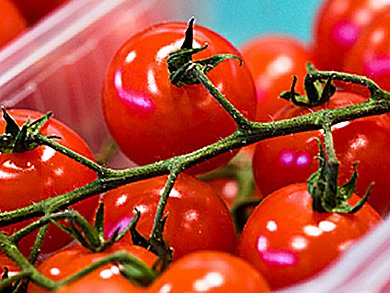The plant hormone ethylene is a major cause of ripening of tomatoes. Its potent inhibitor 1-methylcyclopropene is commercially employed to maintain the freshness and quality of tomatoes. The use of this inhibitor is, however, limited as it is a gas.
Fei Xu and colleagues, Sichuan University, China, demonstrated that the antioxidant n-propyl gallate effectively inhibits the postharvest ripening of tomatoes, thus representing an alternative to the use of 1-methylcyclopropene. In addition to suppressing ethylene production, n-propyl gallate increased the shelf life of tomatoes most likely by reducing oxidative stress and promoting the activity of antioxidant enzymes. Chlorophyll degradation and lycopene synthesis, two essential events for the development of the red pigmentation, were also prevented upon the treatment of tomatoes with n-propyl gallate.
Moreover, n-propyl gallate helped to maintain fruit firmness and counteracted the increase of soluble sugars occurring during maturation.
- N-propyl gallate is an inhibitor to tomato fruit ripening,
F. Xu, D. Zhang, J. Wang, Z. Zhang, L. Wen, J. Du, J. Shang, M.Yuan, S. Yuan, H. Lin,
J.Food Biochem. 2012, 36 (6), 657–666.
DOI: 10.1111/j.1745-4514.2011.00580.x




